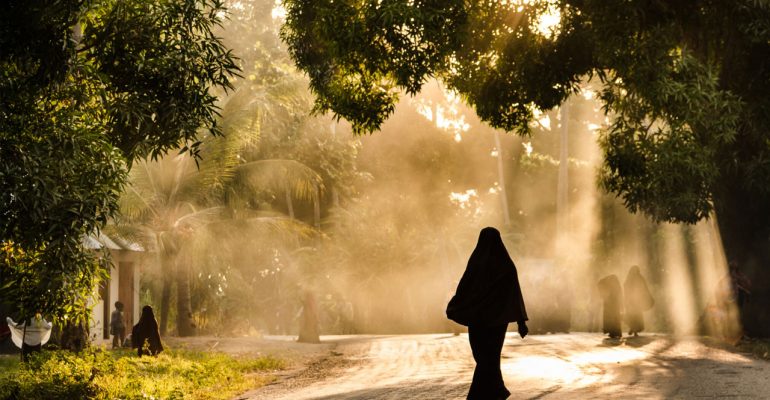New study shows Brazilian Muslim women facing increasing Islamophobia
December 19, 2022 2024-03-18 12:16New study shows Brazilian Muslim women facing increasing Islamophobia

New study shows Brazilian Muslim women facing increasing Islamophobia
A study on Islamophobia in the Latin American country shows that working-class women face hostility on the streets and from their own families
A recently published study on Islamophobia in Brazil – the first one in Latin America – showed that Islamophobia is common among Muslim women in the South American nation. The survey, carried out by the Anthropology in Islamic and Arab Contexts Group, led by anthropologist Francirosy Barbosa, showed that 73 percent of the female interviewees have already suffered some sort of aggression on the streets. Most of the attacks were verbal, but 10 percent of them report to have been physically assaulted.
Barbosa, a professor at the Department of Psychology of the University of São Paulo in Ribeirao Preto and a Muslim convert herself, explained that Islam has been steadily growing in the country over the past 20 years.
New waves of immigration from Muslim countries and an increasing number of converts have been the central reasons for that phenomenon. Women have taken the lead in that process, with 70 percent of all conversions.
There are no reliable numbers concerning the size of the Muslim community, but it has been estimated by unofficial sources to be at least 700,000 people. Families of Arab origin continue to be the majority among them.
Poor Muslim Women More Vulnerable
For Muslim women living in poor neighborhoods and using public transport every day, the risks are much greater. “Reverted women are more socially exposed because they take buses and trains and walk on the streets, so, that is a situation that involves class, race, and gender issues.” explained Barbosa, adding that many of such women are workers and have African descent.
Family Rejection
The adversities faced by women who convert to Islam in Brazil are manifold, Barbosa said. It is not easy to talk about reverting to Islam in some countries. Muslims have to deal with many problems and harsh words because of the lack of knowledge about the real Islam. The study demonstrated that 42 percent of the converts had to face their family’s rejection of their new religion.
According to Sheikh Ali Abdune, who heads the World Assembly of Muslim Youth in Brazil, “Muslims have been the victims of deceitful propaganda disseminated by the media for a long time.”
“Misinformation is so overwhelming that many people do not even know that Islam is a religion,” he lamented.
Abdune emphasised that many non-Arab Muslims have told him about cases of exclusion they suffered among relatives or at work.
Muslims with No Hijab
The decision to wear a head covering may be a long and difficult process for many Muslim women in Brazil. Many women have suffered attacks on the street in order to intimidate them. That’s why it is hard for Muslim women to wear Hijab freely outside.
Maria Eduarda da Silva, a 24-year-old geography teacher in Recife, Pernambuco State, has been avoiding wearing a headscarf since she converted to Islam one year ago.
As a public school teacher, da Silva must comply with an appearance code, she said. “Men cannot have long beards, for instance. So, I am afraid to wear a hijab while I am at school,” da Silva affirmed.
She said that a colleague of hers failed to get a position as an intern in a school due to her hijab – something that increased her fear.
Muslims as Enemies
The interviews were conducted in 2021, the third year of far-right President Jair Bolsonaro’s tenure. Since his presidential campaign, in 2018, the incumbent – who was defeated in his bid for re-election in November and will leave the presidency on 31 December – has been a strong ally of right-wing evangelical Christians.
Their growing social presence and political power has intensified Islamophobia in the country, according to Felipe Freitas de Souza, one of the study’s authors.
There are several reports about evangelic people who humiliate Muslims. The rising number and the confluence of many of evangelicals and their segments with the right-wing is a recent phenomenon, which coincided with the adoption of Israeli symbols by many people and consider Muslims as enemies.
It is not a coincidence that most Muslims in Brazil consider that evangelicals are the religious group that discriminates against them the most: that is true for 73 percent of the Muslim women interviewees. Many of them face such a reality at home.
Muslim Community Criticized
Both Francirosy Barbosa and Felipe de Souza affirm that the Muslim community in Brazil has not been very cooperative when it comes to protecting the victims of Islamophobia, especially when they are women converts.
“Most Muslim leaders in Brazil prefer to talk about religious intolerance, believing that ‘Islamophobia’ is a too negative term and may make things worse,” Barbosa reflected.
There is also a component of xenophobia in that problem, she added.
“The Muslim communities failed to build representativeness. Most of them are hegemonically Arab and fail to include women, Blacks, and poor,” Barbosa argued.
The result is that working-class women who live in the poor outskirts of Brazilian cities do not feel represented – nor protected – by community leaders.
The researchers interviewed 653 Muslims. Most of the people who agreed to participate were women. For Barbosa, that is a sign that they feel an urge to denounce what they have been going through.
“Violence is provoking serious consequences for their mental health. Many of them complained about depression, sadness, low self-esteem, and many end up distancing themselves from their faith. We cannot maintain a denialist attitude and just pretend that Islamophobia does not exist in Brazil,” Barbosa concluded.
Source: The Middle East Eye








